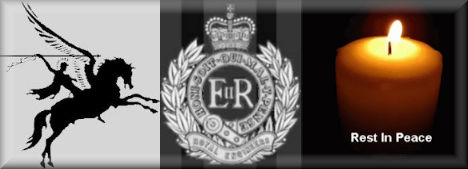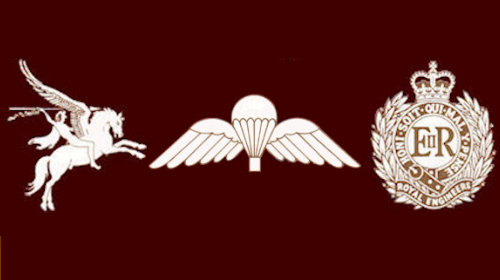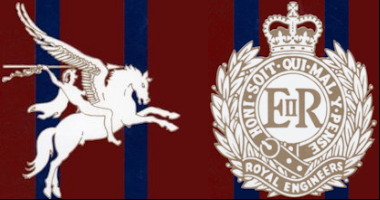
Roll of Honour

Richard Robb
Richard, who was born in Glasgow, passed away in March 2003 aged 82, after a short illness. His wife Betty, and his son Chris and daughter Margaret and four grandchildren survive him.
Dick, as his contemporaries knew him, was in the Royal Engineers. He supervised the laying of various anti-invasion devices in Scotland, either with explosives or inflammable liquid, in the early 1940's when invasion by the Germans was a real threat. There is one story that shows how very strict Forces life was in those far away days: Dick, in the very lonely camp, was sitting one night as orderly Corporal, in the little Nissen hut office, with just a telephone and a typewriter, Dick, with nothing to do but stare at the telephone and typewriter, thought he would get away with a phone call to Glasgow, unfortunately this was the night that Naval Intelligence decided to check on all telephone calls in the area. As this was a non-military call and against Standing Orders in a censored area, Dick was reported and sent back to Stirlingshire were he was demoted to a Sapper. To anyone who had worked with this wonderful young corporal this was extremely harsh.
He volunteered for "Churchill's 5000" and eventually became a member of the 1st Parachute Squadron, Royal Engineers. After training in various parts of the United Kingdom the unit went to North Africa, and took part in several operations in Tunisia between November 1942 and April 1943. In May 1943 the Squadron went to Sicily and from there to Italy. Whilst in North Africa and Italy the unit fought as Infantry as well as Engineers during the campaigns. Dick returned to England in December 1943 and ended up with other members of the Squadron at Donington in Lincolnshire. It was whilst stationed at Donington that Dick met his wife Betty.
On the 17th September 1944 the Squadron left Lincolnshire to parachute into Holland, along with many others from the 1st Airborne Division, bailing out at 3 minutes past 2.00.pm. Part of their job was to capture and hold the bridge at Arnhem. They arrived at their destination just as it was getting dark and took up positions in a large office building, when they came under heavy enemy fire and Dick was wounded, for the first time, in the face. It was hopeless with the numbers of defenders so they fought their way to the next-door building, taking their wounded with them. They fought a most ferocious battle for three days and nights without food and water. Dick fought well and courageously until he was again wounded, this time more seriously. Out of ammunition and with most of them wounded, but with many enemy dead and wounded around them, they were captured and interrogated and taken into captivity.
After the war Dick returned to his job as a Civil Engineer, and was employed by several well-known companies and organisations. Before he retired, he was a Senior Lecturer, in the Civil Engineering Department at Nottingham Polytechnic. He was a very keen golf player, and at one time played squash.
Those of us who served with Dick will remember him as a wonderful and courageous soldier, and our sympathies go to his wife, Betty and his children and grandchildren.












